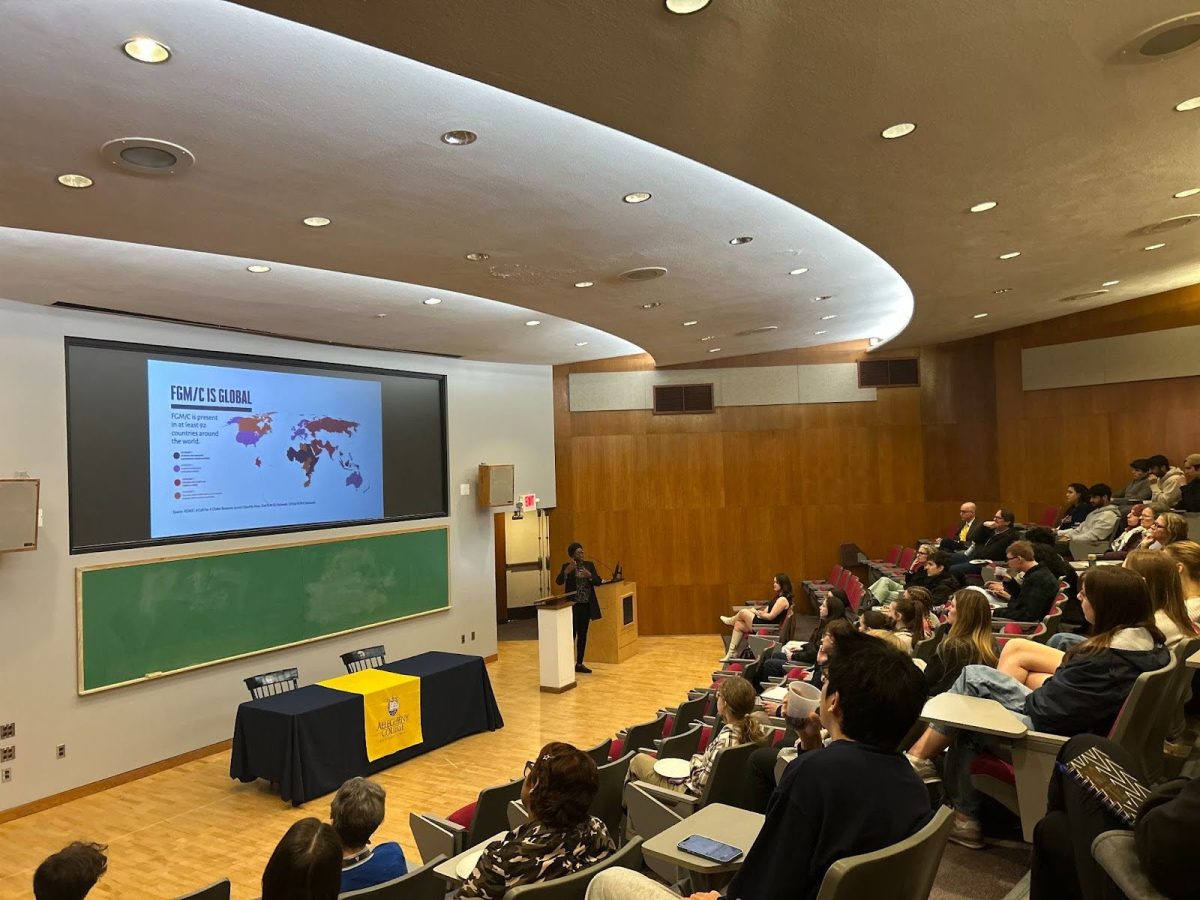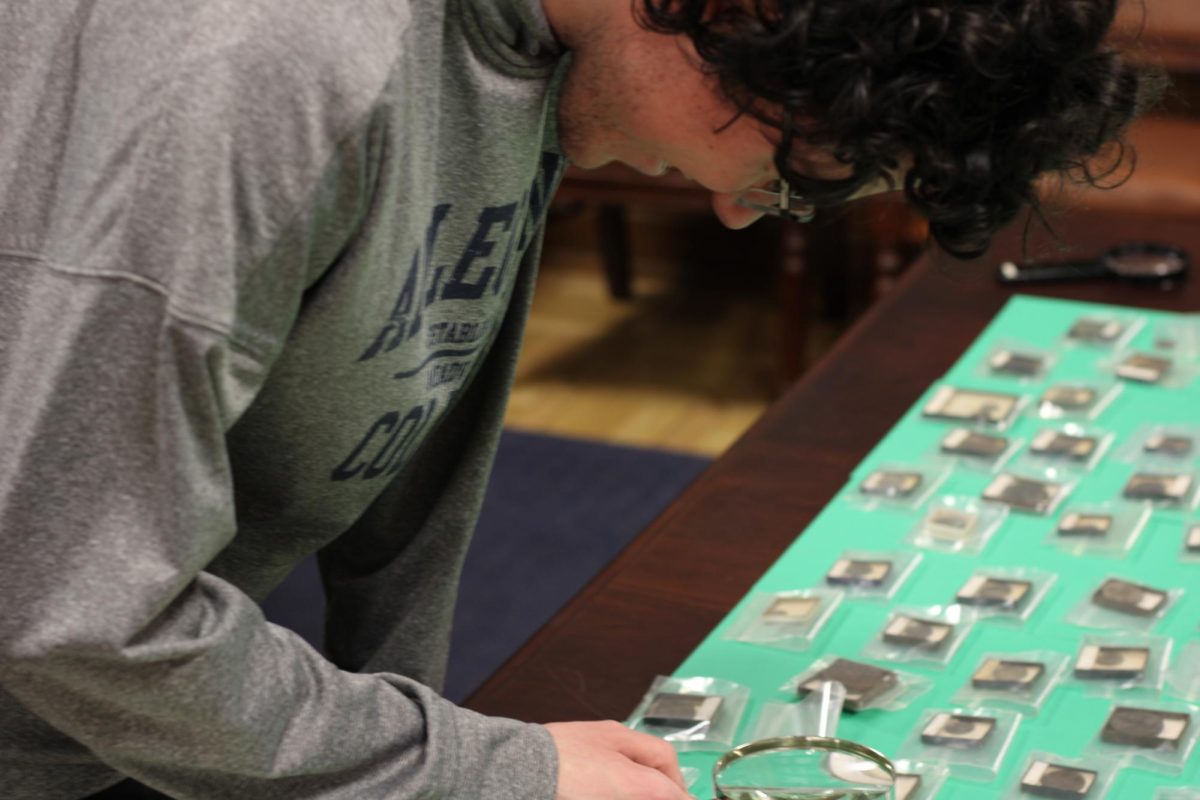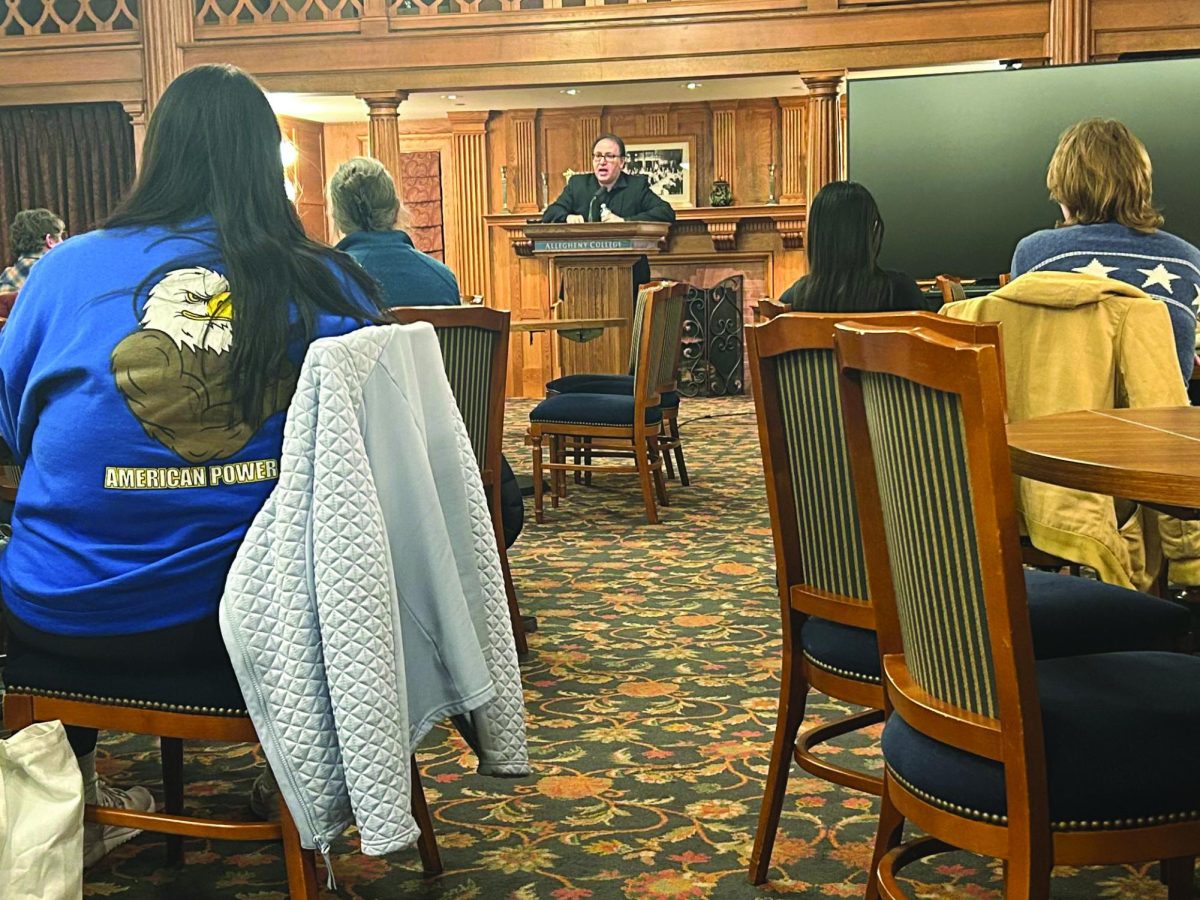Allegheny College’s IDEAS Center concluded Hispanic Heritage Month by hosting a panel to highlight Hispanic student and faculty experiences on campus. Hispanic Heritage Month spans from mid-September to mid-October. The panel was hosted on the very last day of Hispanic Heritage Month — Oct. 15 — in room 301 of the Henderson Campus Center from 4 p.m. to 5 p.m. to close out the month. The IDEAS Center’s goal was to educate the community and share different cultural communities and backgrounds.
“It was really educational and informative but also beneficial for the community,” said Assistant Director of the IDEAS Center Marquel Jeffries.
Jeffries asked questions of the panel, which consisted of two students and two professors. The crowd was engaged with the conversation, with several people asking follow-up questions to help better understand the Hispanic and Latino community.
Associate Dean of Inclusive Excellence Dominique Turner said he learned a lot about the community through this one last panel.
“I liked the event,” Turner said. “I thought the event was a great culmination for the celebration of Hispanic Heritage Month. I just enjoyed learning more about the perspectives of my colleagues.”
A theme the panelists touched on was language and the cultural differences that exist between languages. Although they all speak Spanish, the panelists discussed their use of different slang and dialects depending on their country of origin.
The panelists described how talking in certain ways would lead them to be put into a box of which economic class they are in by just the way they speak. Spanish spoken in Spain is considered the formal way to speak but the board felt a disconnect with that type of Spanish.
One student on the board took a Spanish class in high school and was told by her teacher that she was speaking Spanish incorrectly. She said that though her Spanish wasn’t incorrect, she did not speak with a Spain accent
Street Spanish is a big thing used to put different people in a box to try and put them down. Someone can speak a language completely different from others and not in a formal manner every time they talk, but others will assume you can or can’t do something just by the way you speak.
Last names are also a way to associate people with different classes. Another board member said that in a business setting, she does not like saying her last name because of the probability that she won’t get a job opportunity.
Last names and languages aren’t the only struggles the Spanish and Latinx cultures have in America, according to the panel. Transitioning to English in school but speaking Spanish at home is a struggle a lot of students have when first moving to America.
Spanish Professor Wilfredo Hernandez was on the panel to speak about his experiences from moving to America from Venezuela. He does not see himself as American but more so as an immigrant. He struggled, but he believed that coming to America was the right decision because back home in Venezuela the politics made the country unsafe.
“I think some people still have biases and think some varieties are better,” Hernandez said.
Although Hernandez does not wish to go back to Venezuela to live, he does miss some aspects of his own culture. He tries making a coffee that he used to have called “cafe con leche” to connect with his home. Cafe con leche is a Spanish coffee that has a distinct flavor due to its ingredients being half milk and half coffee.
He believes that people in other countries do tend to believe their cultures are the best. Cultures are often defined by stereotypes that persist because many people never take the steps to educate themselves. Hernandez sees this as a challenge and is excited to learn about other cultures and how and why they act certain ways to certain things.
Latinx and Hispanic people experience many struggles that are not often readily apparent to those outside their communities. The panel concluded by emphasizing that people need to be educated more about the culture before they start to judge them based on their color or based on their last name.
“It’s important to recognize and advocate for the changes within my community,” said Amberlyn Escobar, ’27. “So that we have a more positive relationship with every member.”
Categories:
IDEAS Center closes out Hispanic Heritage Month
Story continues below advertisement
0
More to Discover







